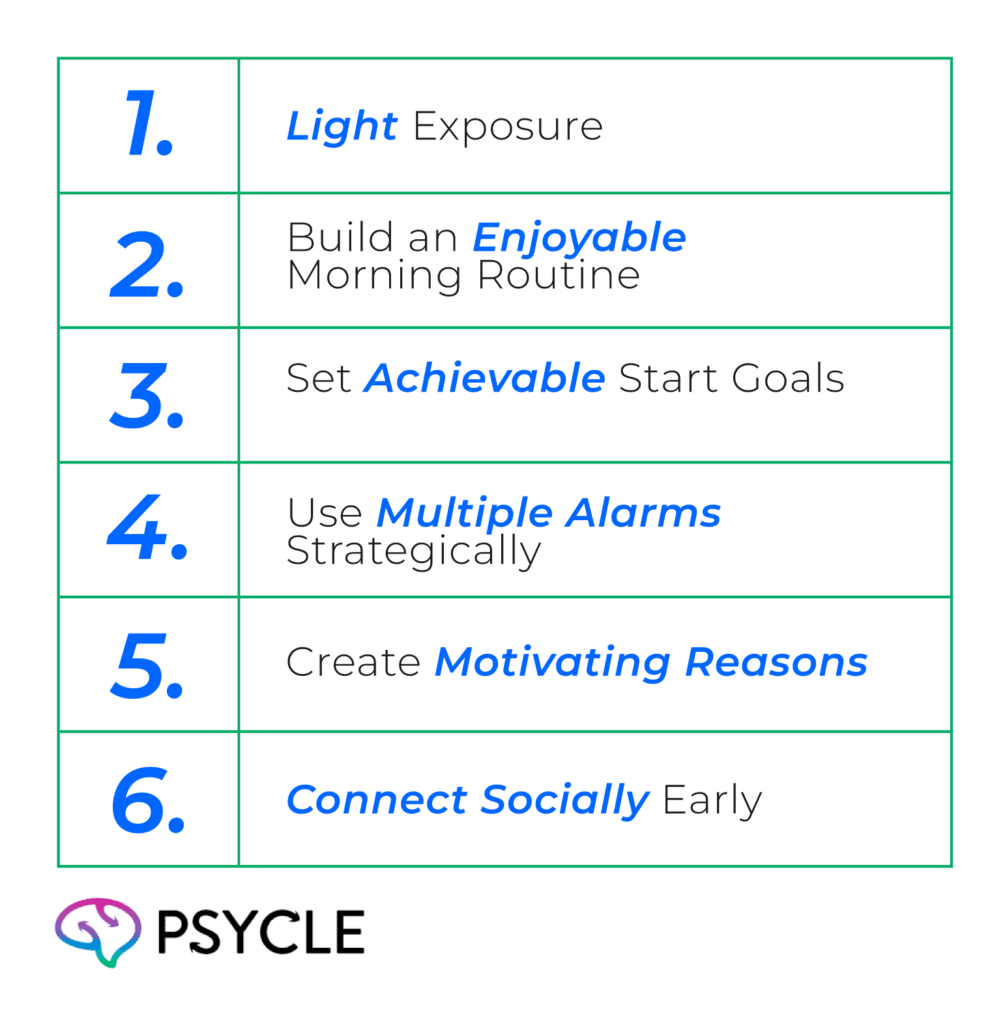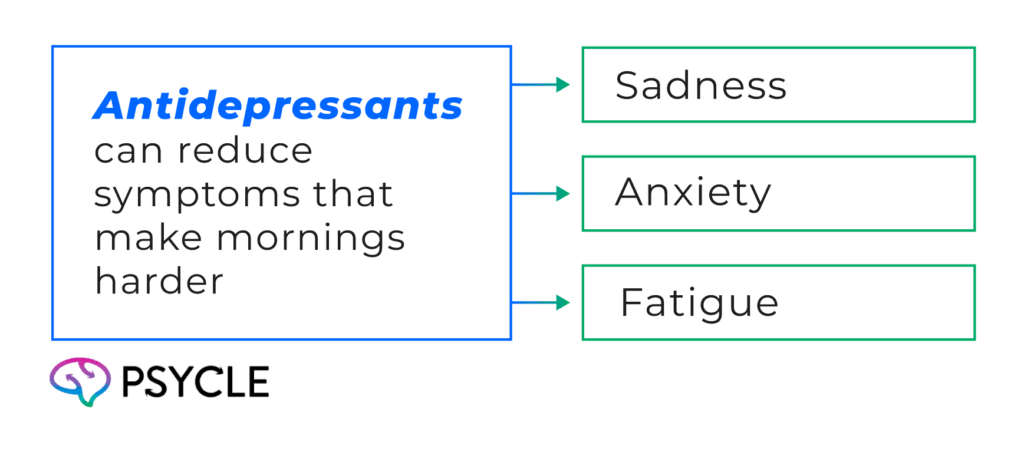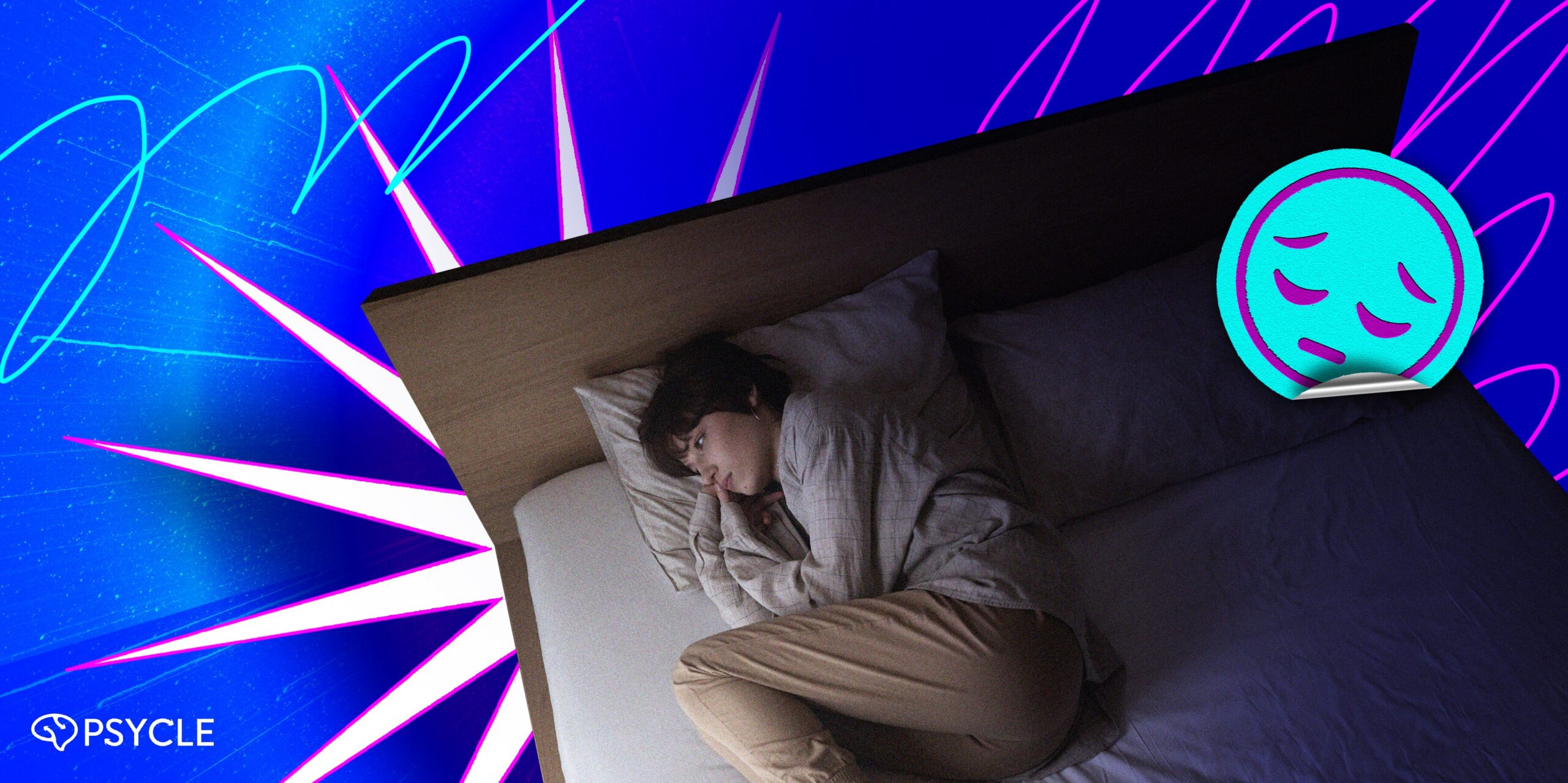When you live with depression, even the first step—getting out of bed—can feel impossible. You may feel stuck, tired, or numb, with no clear reason to move. In this article, we’ll discuss why depression can make it hard to get out of bed and provide some actionable steps to motivate you in the mornings.
Key Takeaways
- Depression can make mornings feel heavier due to fatigue, low motivation, or mood changes.
- Light, structure, and small rewards can help you move from bed to the rest of your day.
- Alarms, routines, and body cues (like thirst or hunger) can gently push your system into motion.
- Talk therapy, medication, and newer treatments like ketamine or TMS can support recovery.
- You don’t have to wait until things get worse—treatment can help you feel more stable and able to function.
Why Depression Makes It Hard to Get Out of Bed
Depression is a complex condition influenced by both biological and psychological factors. It causes measurable changes in brain structure and function that help explain why even getting out of bed can feel overwhelming.
On a psychological level, depression also feeds into patterns of hopelessness, low self-worth, and rumination—the tendency to dwell on negative thoughts. This can create a feedback loop where the person expects the day to be difficult or meaningless before it even begins, reinforcing the desire to stay in bed and avoid the world.
Biological Factors Involved in Depression
One key brain change in depression is the prefrontal cortex (PFC), which is responsible for emotional regulation. In people with depression, this region often shows reduced activity and volume, making it harder to manage negative thoughts or stressful events.
At the same time, the amygdala, which processes fear and emotional reactions, tends to become overactive, which can heighten sensitivity to stress. These factors can lead to persistent anxiety, disrupted sleep, and emotional exhaustion, making mornings especially difficult.
Another critical brain region affected by depression is the ventral striatum, which plays a key role in regulating motivation and reward. When this area is underactive, as is often the case in depression, people may experience anhedonia—a reduced ability to feel joy or interest in things they once enjoyed. Without that internal drive or sense of reward, everyday tasks like getting dressed or starting the day can feel pointless or unbearably effortful.
While depression can feel demoralizing, it’s possible to help reverse these brain changes with the right support, therapy, and lifestyle changes.
Tips on How to Get Out of Bed if You’re Feeling Depressed

Light Exposure
Natural light signals your brain to wake up. By exposing your eyes to sunlight or bright indoor light soon after waking, you can naturally increase your energy and mood. You could try opening some curtains or stepping outside when you wake up, even if you return to lying in bed afterward. This morning light exposure can help give you a boost for the day, and regularly doing so can help reset your natural sleep-wake cycle. Light therapy lamps can also help when natural light is limited.
Build an Enjoyable Morning Routine
Short, easy routines give your morning structure. By creating an enjoyable routine, you can make your mornings more satisfying and train yourself to get up more easily. This routine can be extremely simple, including activities such as reading a few pages of a favourite book, listening to your favourite songs, or making a nice, warm drink.
Set Achievable Start Goal
Start with one simple task. Sit up. Put your feet on the floor. Stand and walk to the bathroom. These actions break the freeze feeling. Repeating small actions helps build a habit, even when depression feels strong.
Use Multiple Alarms Strategically
Set more than one alarm and place them across the room to make yourself move. Choose calm or gentle sounds if loud alarms feel too jarring. Moving toward the alarm helps trigger body movement and gives your brain a chance to shift gears.
Create Motivating Reasons
Write down a list of all the reasons to get out of bed. Consider all the people in your life who bring you joy, as well as the delicious foods, music, and films that you love. Think about simple things like the feeling of sunlight, or exchanging a smile with a stranger on the street. There will always be reasons to get out of bed, but sometimes we can forget these things when we’re feeling depressed.
Connect Socially Early
Reach out to someone in the morning. Send a message, reply to a text, or say hello to a housemate. Even short connections help break isolation and the feelings of loneliness that perpetuate depressive episodes.
Getting the Right Support for Depression
If getting out of bed feels too hard most days, your depression may need more support. You don’t have to wait until things get worse.
Talk Therapy
Therapists help you work through the thoughts and patterns that make it hard to function. For example, cognitive behavioral therapy (CBT) focuses on changing negative thinking that keeps you stuck in bed. Therapy also gives structure and support when daily motivation is low. You can meet with a therapist in person or online, depending on your comfort level and energy.
Medication Options
Antidepressants can reduce symptoms that make mornings harder, like sadness, anxiety, or fatigue. Common types include SSRIs (like fluoxetine) and SNRIs (like duloxetine). These medications adjust brain chemicals associated with mood. They often take a few weeks to work, but they can make it easier to start moving and care for yourself.

Innovative Treatments
When traditional treatments fail to work or cause unwanted side effects, innovative options can offer a solution.
- Ketamine therapy involves administering ketamine as an intravenous (IV) infusion at a clinic or at home as an oral tablet. It may reduce severe depression symptoms within hours or days.
- Spravato is a medication based on ketamine that is FDA-approved for treatment-resistant depression and major depressive disorder with suicidal ideation.
- Transcranial magnetic stimulation (TMS) uses painless magnetic pulses to activate parts of the brain linked to mood. TMS happens at a clinic and does not require medication. As well as depression symptoms, it may improve energy and focus, which can make mornings feel less overwhelming.
FAQs
What if I Still Can’t Get Out of Bed, Even After Trying Small Steps?
That can be a sign your depression needs more treatment. Talk to a doctor or therapist about how often this happens. You might benefit from adjusting your care plan or trying new approaches like medication, therapy, or innovative treatments.
Is it Normal to Need Help for Something as Basic as Getting Out of Bed?
Yes. Depression can affect physical energy, motivation, and thinking. Needing help with daily tasks doesn’t mean you’re weak—it means your brain is dealing with an illness. Support can help you regain energy and structure over time.

